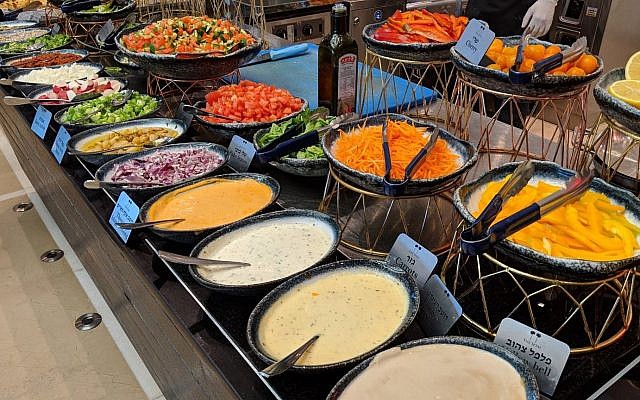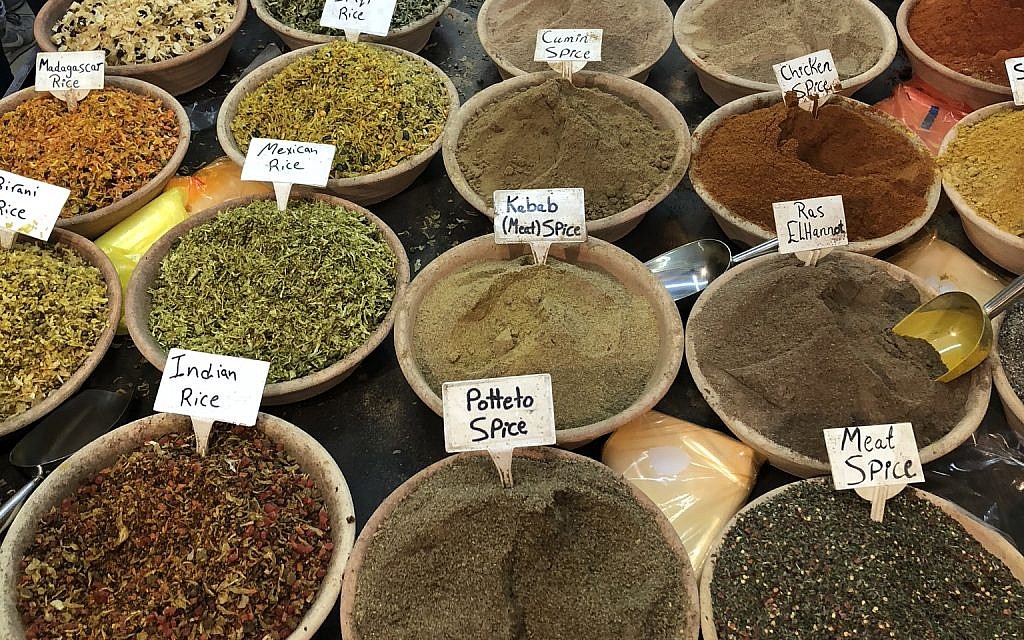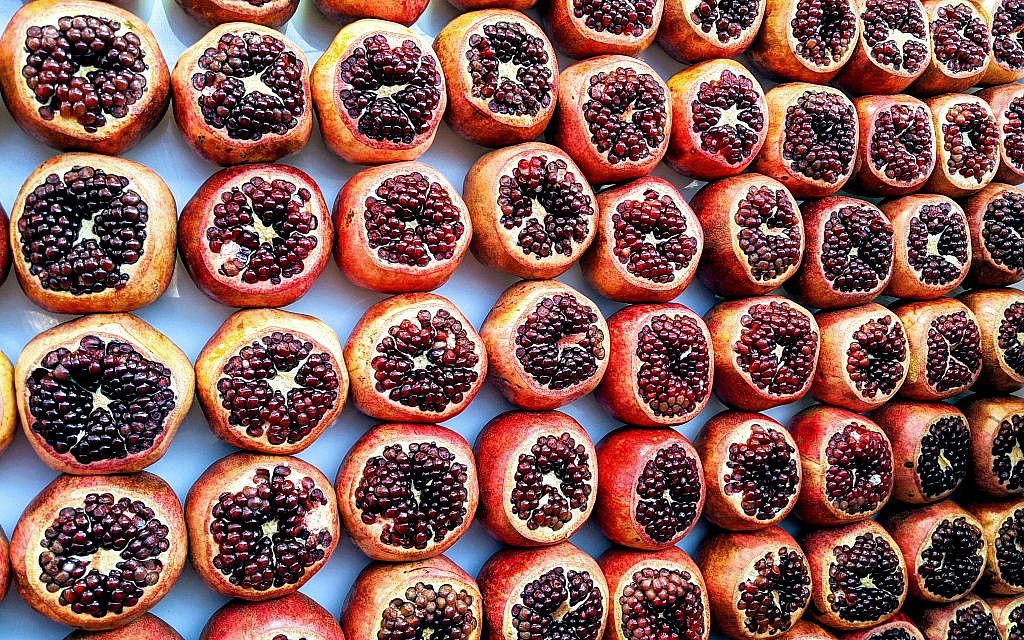Israel + Vegetarian Food = Good Health
Dishes that are 100 percent vegetarian in Israel are not only delicious but are presented beautifully in places like Tel Aviv, now known as the vegan capital of the world.

One of the highlights of my recent trip to Israel is the country’s passion for fresh vegetarian cooking. Dishes that are 100 percent vegetarian in Israel are not only delicious but are presented beautifully in restaurants or food markets, where you can see the mix of textures, colors and compositions. Bowls filled with olives, carrots, chickpeas and beets become a form of art.
Freshly picked vegetables and fruits harvested from Israel kibbutzim arrive by trucks to cities and outdoor markets. Juicy tomatoes ripe from their vines along with crisp cucumbers, when chopped, make “Israeli salad,” a great staple to go with all meals. Luscious fruits such as oranges, apples and the biblical iconic pomegranate are picked off trees lined up in neat rows in the North Galilee on the shores of Lake Kinneret.
And it’s no surprise that Tel Aviv has become known as the vegan capital of the world.
As a tourist or visitor, how easy is it to find great vegetarian food in Israel? One doesn’t have to be a gourmet chef or food critic, or to seek out a five-star restaurant to become an enthusiastic vegetarian “foodie.”
In Israel, salads are so universally popular that any breakfast, lunch or dinner — whether it’s cooked at home or in a restaurant or hotel — will have a wide variety of these healthy choices. About a third of restaurants in Israel are kosher, and a great majority are strictly vegetarian. Eating a great vegetarian salad as a main course is definitely taken more seriously in Israel.

And what would a visit to Israel be without having the ubiquitous falafel, stuffed into a warm oversized pita with room enough for spicy pickled cabbage, hummus, maybe some eggplant and tahini? Here in Atlanta, places such as Pita Grille, Pita Palace, Mediterranean Grill and Café Sababa Mediterranean Grill offer different twists on this Israeli and Middle East delicacy.
At the outdoor street food market of Shuk HaCarmel in Jaffa, Tel Aviv, it was particularly exciting to see the abundance of unique fruits and vegetables, while hearing the whirr of blenders combining pomegranates with pineapple, spinach and other vegetables to make a refreshing Israeli smoothie.
The Mahane Yehuda Market, nicknamed “Mahane Yuda,” near the Old City of Jerusalem also displayed beautiful foods, especially sweets like halvah, but some vegetables and fruits too.
Su Schaer, owner of Nimble Design Team in Atlanta, studied art at the Bezalel Academy of Arts and Design Jerusalem. She often returns to Israel to visit her sister, who lives near Tel Aviv.
“It’s easy to be a vegan or vegetarian in Israel. In the supermarkets there are entire walls of yogurts, cheeses and many bins of all sorts of olives and spices. Eggplant is a staple and so is tahini, a condiment made from crushed sesame seeds.” She continued to tell me that shakshuka, a “comfort food” for her family, made its way into every Israeli kitchen: a delicious stovetop meal of diced onions, peppers and tomatoes with eggs cracked into the mix and cooked together until the eggs are almost firm, then topped with za’atar (a Middle Eastern oregano) and scooped up with fresh pita bread.
Schaer said that labneh, a yogurt-type of cheese, is a tasty accompaniment.

Why should we care about adding more vegetarian foods to our daily meals or perhaps seriously consider becoming a total vegetarian?
The China Study by T. Colin and Thomas Campbell is a comprehensive report on disease and diet that found a connection between nutrition and major diseases. David Aukamp, owner of Springs Yoga Studio, wrote about the study in a May 3 blog post on his site.
“People who ate the most plant-based foods were the healthiest.” Aukamp wrote. “Consider eating more plants for protein and enjoy all the health benefits that go with them, like reduced chance of heart disease, stroke, Type 2 diabetes, and some cancers. You will probably notice more energy as well.”
Let us be inspired to increase wellness by learning more about and enjoying delicious Israeli vegetarian foods. L’Chaim, to Life!
Here are some common Israeli vegetarian dishes to try:
- Baba ghanoush – Eggplant with parsley, garlic, lemon, tahini and spices
- Bourekas – Pastries filled with potato, spinach, cheese or mushrooms
- Falafel – Chickpeas or fava beans (or both combined), garlic, onion, parsley, flour and spices, fried
- Hummus – Chickpeas and tahini sauce (from sesame seeds), olive oil, pine nuts and sometimes with onions and/or softened whole chickpeas
- Quinoa salad – With pistacchios and currants
- Shakshuka– Cracked eggs cooked in tomato sauce, sprinkled with chopped parsley and crumbled feta cheese



comments